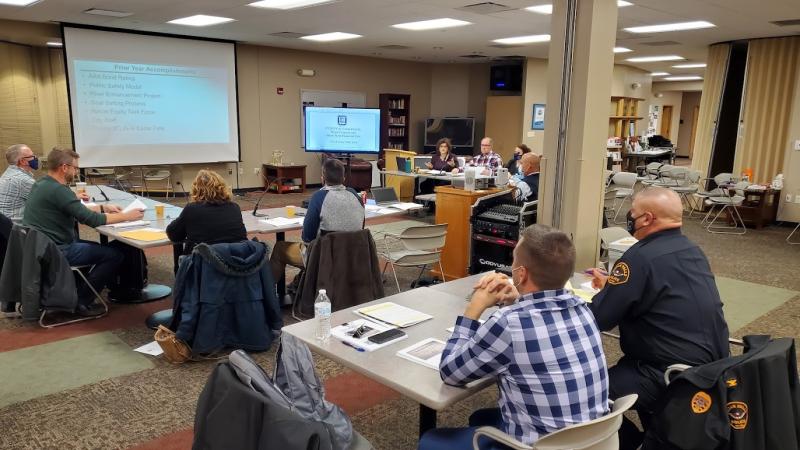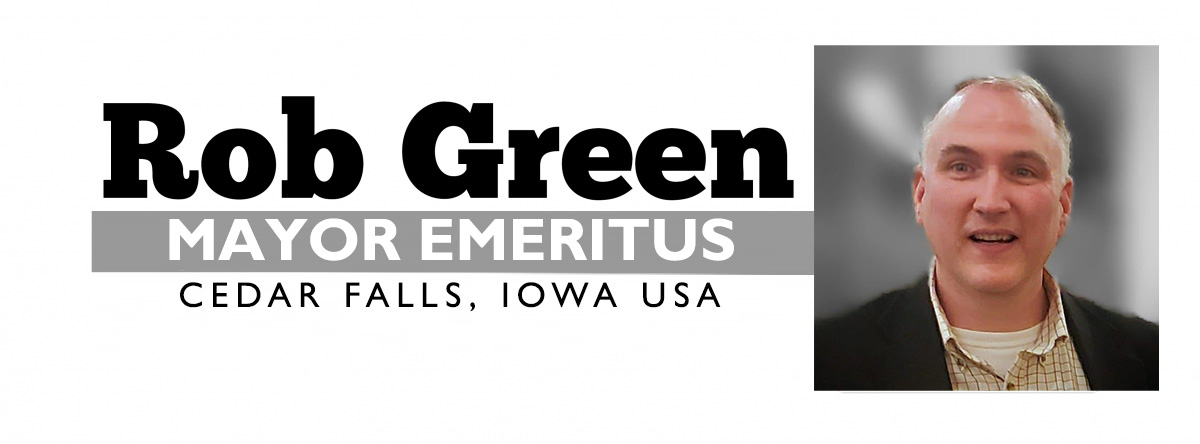
I just thought I'd take a few minutes for a Local Civics 101 brief, since some of you like when I present information like this. Today we're talking about the City Council's annual Goal Setting Work Sessions.
In December (during election years) or November (in non-election years), the City Council meets for a two-day retreat of sorts on a Tuesday and Thursday evening. The public can attend and observe the deliberations, but not comment. The end product is the next fiscal year's version of the Council Goals and Objectives document, which is approved by the City Council in December or January. It's part of my job under 2-187(b)(12) of the city code: "The mayor shall assist the council to develop long-term goals for the city and strategies to implement these goals". It's a responsibility I take seriously -- and one that, fortunately, I also enjoy.
The past few years, the Goal Setting Sessions have been held at the Community Center or the Public Safety Building’s training room. The City Administrator and department directors attend to present information and answer questions. The sessions run from 4pm to about 8:30 or 9pm, with a short break for boxed dinners. The atmosphere is purposely as casual as we can make it.
Goal setting kicks off each October, when the city councilors are given a questionnaire/survey by the city’s contracted facilitator; the councilors are then interviewed by the facilitator to get a sense of what upcoming topics or issues are important to the councilors. Also included are any newly elected members, since their opinions greatly matter, too. Councilors who choose not to complete the survey or the interview are at a disadvantage during Goal Setting because much of what we talk about is based on that October input from the councilors.
Each night of Goal Setting has a formal agenda, organized around the Council's five long-term goals (which appear in the Council Goals and Objectives doc). On Tuesday, we cover any proposed changes to the doc's Financial Annex first (since our financial policies dictate what other initiatives we can pursue). And then we go through the objectives and policies under Goals 1 and 2. On Thursday night, we come back and talk through the objectives under Goals 3, 4, and 5. If we can’t get through it all, we have the option of a third Work Session night the next week, but so far we’ve not needed it in the four years I've done it.
All residents should care about the Goal Setting Sessions because they determine what the City Staff is going to bring forward to the council for a formal vote in the next fiscal year. Since the Goal Settings sessions aren’t broadcast on Cable TV, councilors usually feel much freer to ask questions and have a real conversation about the topics at hand. The goal of the Goal Setting Sessions is to get a consensus on proposed initiatives (at least four of seven councilors nodding or assenting) so that there’s a reasonable chance that the final item could be approved in a regular council meeting. Nobody wants staff to waste their time preparing something that’s likely to be voted down!
Everything we discuss in Goal Setting will (at some point) be brought before the full city council in a regular meeting for public comment and voting. And no council member is 'held to' their consent during goal setting; they can vote against the final item if they wish.
Other cities have expressed appreciation for our process, and have sought to duplicate it; staff does a great job with prepping for it (despite the time crunch) and this kind of deliberative and collaborative civic planning is why Cedar Falls is so successful as a community. Last year, the Council allowed me to reorganize and de-jargonize the 35 page document and to simplify from 7 goals down to 5. But the overall structure and process of goal setting have largely remained intact over the past 35+ years, and the process works very well.
If you’re considering running for council or mayor, you’d be well-served by attending the Goal Setting sessions as an observer (come and go as you please). Or at least read through and understand the resulting Council Goals and Objectives Document. It’s a time investment, but time well-spent to be an informed and engaged resident.
Thanks for reading to the end!
